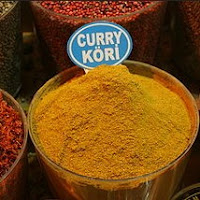A drug developed by scientists at the Salk Institute for Biological Studies, known as J147, reverses memory deficits and slows Alzheimer’s disease in aged mice following short-term treatment.
J147 was developed at Salk in the laboratory of David Schubert, a professor in the Cellular Neurobiology Laboratory.
India has Less Alzheimer’s than the USA
Dr. Schubert said, “It’s been known for a long time that people in India don’t get very much Alzheimer’s relative to what happens in the United States and the rest of the world. One of the curiousities about the diet in India is that they eat a lot of curry. A major spice in curry is turmeric. A major component of turmeric is curcumin.
“Curcumin has been around for a while. It is an FDA-Approved drug for cancer. A friend of mine in Los Angeles, Greg Cole, found that if you give curcumin to very similar mice to what this study’s author has been using, they get a little better, the (Alzheimer’s) plaques go away.
“The problem with curcumin is that it is not a great drug, in the sense that it gets degraded very rapidly. It’s availability is quite low in the bloodstream and the brain.
“We decided to make a better version of this.We did a lot of medicinal chemistry. We came up with J147.”
“Strong Potential to Slow Alzheimer’s”
Lead study author Marguerite Prior, a research associate in Salk’s Cellular Neurobiology Laboratory, added,
“J147 is an exciting new compound because it really has strong potential to be an Alzheimer’s disease therapeutic by slowing disease progression and reversing memory deficits following short-term treatment.”
Because of its broad ability to protect nerve cells, the researchers believe that J147 may also be effective for treating other neurological disorders, such as Parkinson’s disease, Huntington’s disease and amyotrophic lateral sclerosis (ALS), as well as vascular dementia from stroke, although their study did not directly explore the drug’s efficacy as a therapy for those diseases.
The findings, published in the journal Alzheimer’s Research and Therapy, may pave the way to a new treatment for Alzheimer’s disease in humans.
Despite years of research, scientists are still seeking the first disease-modifying drugs for Alzheimer’s. Current FDA-approved medications include
- Aricept® (generic donepezil)
- Razadyne® (generic galantamine)
- Exelon® (generic rivastigmine, sometimes branded as Ebixa® in Europe)
These offer only fleeting short-term benefits for Alzheimer’s patients, but they do nothing to slow the steady, irreversible decline of brain function that erases a person’s memory and ability to think clearly.
Protecting Brain Cells
Professor Schubert and his colleagues bucked the trend within the pharmaceutical industry, which has focused on the biological pathways involved in the formation of amyloid plaques, the dense deposits of protein that characterize the disease. Instead, the Salk team used living neurons grown in laboratory dishes to test whether their new synthetic compounds, which are based upon natural products derived from plants, were effective at protecting brain cells against several pathologies associated with brain aging.
From the test results of each chemical iteration of the lead compound, they were able to alter their chemical structures to make them much more potent. Although J147 appears to be safe in mice, the next step will require clinical trials to determine whether the compound will prove safe and effective in humans. Professor Schubert said,
“Alzheimer’s disease research has traditionally focused on a single target, the amyloid pathway, but unfortunately drugs that have been developed through this pathway have not been successful in clinical trials. Our approach is based on the pathologies associated with old age – the greatest risk factor for Alzheimer’s and other neurodegenerative diseases – rather than only the specificities of the disease.”

Salk scientists developed J147, a synthetic drug shown to improve memory and prevent brain damage in mice with Alzheimer’s disease.
Images: Courtesy of the Salk Institute for Biological Studies
To test the efficacy of J147 in a much more rigorous preclinical Alzheimer’s model, the Salk team treated mice using a therapeutic strategy that they say more accurately reflects the human symptomatic stage of Alzheimer’s. Administered in the food of 20-month-old genetically engineered mice, at a stage when Alzheimer’s pathology is advanced, J147 rescued severe memory loss, reduced soluble levels of amyloid, and increased neurotrophic factors essential for memory, after only three months of treatment.
In a different experiment, the scientists tested J147 directly against Aricept (generic donepezil), the most widely prescribed Alzheimer’s drug, and found that it performed as well or better in several memory tests.
“In addition to yielding an exceptionally promising therapeutic, both the strategy of using mice with existing disease and the drug discovery process based upon aging are what make the study interesting and exciting,” says Schubert, “because it more closely resembles what happens in humans, who have advanced pathology when diagnosis occurs and treatment begins.” Most studies test drugs before pathology is present, which is preventive rather than therapeutic and may be the reason drugs don’t transfer from animal studies to humans.
Helps New Neurons Grow & Connect
Prior and her colleagues say that several cellular processes known to be associated with Alzheimer’s pathology are affected by J147, including an increase in a protein called brain-derived neurotrophic factor (BDNF), which protects neurons from toxic insults, helps new neurons grow and connect with other brain cells, and is involved in memory formation. Postmortem studies show lower than normal levels of BDNF in the brains of people with Alzheimer’s.
The Salk researchers say that J147, with its memory enhancing and neuroprotective properties, along with its safety and availability as an oral medication, would make an “ideal candidate” for Alzheimer’s disease clinical trials.
MORE INFORMATION:
Other researchers on the study were Richard Dargusch, Jennifer L. Ehren and Chandra Chiruta, of the Salk Institute.
The work was supported by the Alzheimer’s Drug Discovery Foundation, the Bundy Foundation, the Fritz Burns Foundation, the George E. Hewitt Foundation, the Alzheimer’s Association, and the National Institutes of Health.
About the Salk Institute for Biological Studies:
The Salk Institute for Biological Studies is one of the world’s preeminent basic research institutions, where internationally renowned faculty probe fundamental life science questions in a unique, collaborative, and creative environment. Focused both on discovery and on mentoring future generations of researchers, Salk scientists make groundbreaking contributions to our understanding of cancer, aging, Alzheimer’s, diabetes and infectious diseases by studying neuroscience, genetics, cell and plant biology, and related disciplines.
Faculty achievements have been recognized with numerous honors, including Nobel Prizes and memberships in the National Academy of Sciences. Founded in 1960 by polio vaccine pioneer Jonas Salk, M.D., the Institute is an independent nonprofit organization and architectural landmark.





I read about a small Korean study using tumeric so have been giving it to my husband. Supplements do not get absorb that well with tumeric, but it may be why he has progressed slower than his sister – both diagnosed in their 50s.
The active agent in turmeric is curcumin. You can buy concentrated curcumin supplements. Also, any of the things found in colorful fruits and vegetables are high in related compounds called catechhins, flavonoids and polyphenols, such as resveratrol and grape seed extract, for which you can buy concentrates of supplements. Tea and coffee are high in these natural chemicals, and in fact are the main source of them in the typical US diet.
@CL – I'm new here,but when you say supplements,do u mean vitamin supplements & is tumeric a spice 4 foods that I can buy at a store ?
@Kelly … Yes, you can buy turmeric in cans at the grocery. I have memory issues (age 65) and have been using it and other natural "treatments" for several months. My father passed away from Alzheimer's in 2009. The fogginess I was experiencing has lessened. No guarantee it will slow or stave off Alzheimer's Disease, but the turmeric actually is rather tasty and I sprinkle it on salads, vegetables, etc. and miss it when I eat at a restaurant. I first heard about it on the Dr. Oz show and bought some right away. It can't hurt and if it helps, that's a good thing.
Where can i buy this?
I would also like to know where you can buy this at please..
Grocery or spice / herb shops (Curcuma Longa).
Mix Turmeric powder with black pepper, for better absobtion in the intestine, and [olive] oil to protect from stomac acid.
Turmeric and Pepper are part of Curry ingredients.
Use with foods.
Also see anti oxidants; Red wine, Green tea inhibit amyloid cell damage, etc
Add fenugreek spice for bioavailability…adding black pepper research shows a 7x improve.ent in bioavalailability.
This is a great article. Also turmeric is potentized and made more bioavailable by using Black Pepper with it. God bless you guys who are dealing with this, but he created everything in nature and these substances can cure and ameliorate disease.
Hi
My mother suffers from Alzheimers dissease (AD). Ordinary turmeric is wonderfull and a fine spice for food, but you got to eat a lot before it has any effect on Alzheimers. To treat Alzheimers Deisease you need to take Curcumin in capsules – like 4 x 500 mg a day and take it with fishoil (900 mg DHA) and C-vitamin. Curcumin is not just curcumin – to get the best available for AD you need something like Longvita or Meriva. We have not seen any miracles yet, but hopefully J147 will be available very soon. It should be a much more efficient drug than turmeric or curcumin in food. Hope science soon will be able to treat AD better than today…best of luck to Dave Schubert and his team!
🙂
Without going into details, I strongly urge you to avoid all seafood and fish oil if you suffer from Alzheimers of Parkinson's.
Evidence…
Look up liposomal encapsulated curcumin, it gets thru the gut acids
Where do YOU purchase yours at? Can't find!!!
Dateline: Nov 16th, 2015
Lede: FDA Saves Seniors from Themselves
When a delegation of seniors with severe memory problems presented themselves at the FDA requesting immediate availability of J147, FDA representative Ben Dover told the supplicants to "forget about it", and that they should "remember that the FDA is there to protect them."
This reporter asked Brian Toomore, an older gentleman in the group asking the FDA to allow this treatment, what he thought of Mr. Dover's remarks. He had this to say: "Where am I? Who? Are the Japanese winning?"
I think the only medication to be careful with whilst taking turnmeric are anti cogulants such as Warfarin, due to its blood thinning properties. Please be careful.
My father was diagnosed with amyotrophic lateral sclerosis (ALS) in the summer of 2013; His initial symptoms were quite noticeable. He first experienced weakness in his right arm and his speech and swallowing abilities were profoundly affected. We all did our best to seek help for this disease no medications they prescribe worked ,we were all scared we might lost him due to his condition, as he had been his brother's caregiver a few years earlier for the same disease before he past. doctor recommend nuatural treatment from total cure herbal foundation for his ALS we have no choice to give a try on natural organic treatment ,this herbal cure has effectively reverse my father condition ,losing his balance which led to stumbling and falling stop after the completing the herbal supplement which include his weakness in his right arm and his speech, home remedies from totalcureherbsfoundation com is the best although their service is a little bit expensive but it worth it, they save lives.
Use a liposomal curcumin made by either Thorne or Health Concerns for fantastic absorption